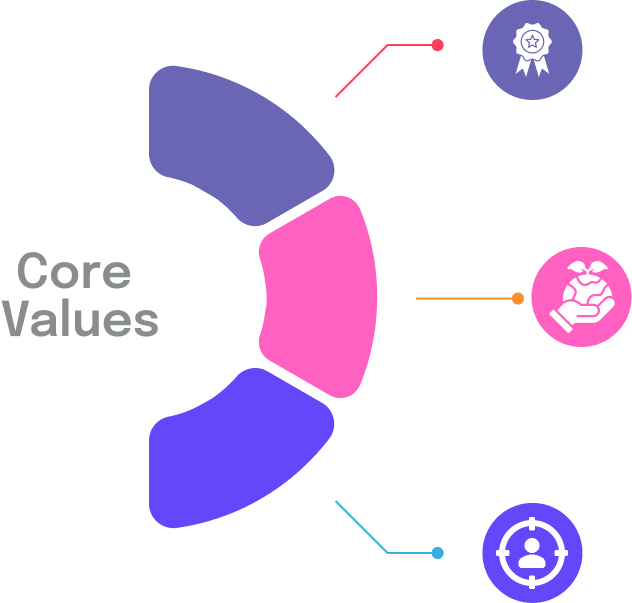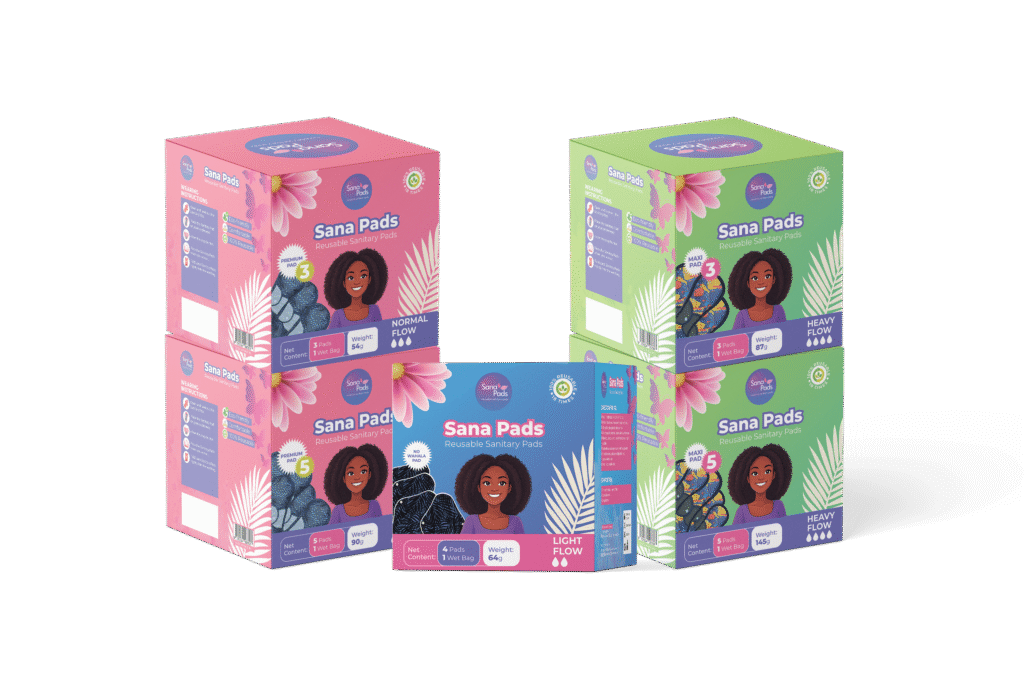Selling Reusable Sanitary Pads | Complete Distributor Guide for Nigeria's Growing Market
Picture this: Miriah, a pharmacy owner in Lagos, noticed her customers asking more questions about eco-friendly period products. Meanwhile, she watched disposable pad sales plateau while hearing stories about girls missing school due to period poverty. That’s when she discovered the untapped potential of reusable sanitary pads—a market that’s not just profitable, but life-changing.
If you’re a distributor, wholesaler, pharmacy owner, or supermarket manager looking to expand your product line, you’re in the right place. Furthermore, the reusable sanitary pads market in Nigeria is experiencing unprecedented growth, and smart business owners are positioning themselves to benefit from this trend.
Why the Reusable Sanitary Pads Market is Booming in Nigeria
The numbers don’t lie—Nigeria’s reusable menstrual products market is on fire. Additionally, recent market analysis shows that Africa’s sanitary pads market is expected to reach USD 1,288.87 million by 2030, with a robust 6.8% CAGR. Moreover, Nigeria represents one of the largest opportunities in this growing market.
The Rising Demand for Sustainable Menstrual Products
Today’s consumers are more environmentally conscious than ever before. Consequently, women across Nigeria are seeking alternatives to disposable pads that end up in landfills. In fact, a single woman uses approximately 11,000 disposable pads in her lifetime—that’s a massive environmental footprint.
Reusable pads offer a compelling solution because they last 2-3 years with proper care. As a result, one reusable pad can replace hundreds of disposables, making it both eco-friendly and economical. Furthermore, with growing awareness about plastic pollution, the demand for sustainable period products continues to surge.
Government Support and Tax Benefits
The Nigerian government has recognized the importance of menstrual hygiene management. Recently, several states have eliminated VAT on sanitary products, making them more affordable for consumers. Additionally, government initiatives supporting menstrual health education in schools create new opportunities for distributors working with educational institutions.
These policy changes mean better profit margins for you and more affordable products for your customers. Moreover, when you partner with organizations like Sana Pads, you’re contributing to government-supported health initiatives.
Market Size and Growth Projections
Nigeria’s sanitary pads market represents approximately 20% of Africa’s total market value. However, the reusable segment remains underserved, creating a significant opportunity for early adopters. In contrast to saturated disposable pad markets, reusable products offer room for growth and customer education.
Industry experts predict that the reusable segment will grow by 8-12% annually over the next five years. Therefore, distributors who enter this market now can establish themselves as leaders before competition intensifies.
Understanding Your Target Customers
Success in the reusable pads market starts with knowing your customers. Unlike disposable pads that sell themselves, reusable products require education and trust-building. Consequently, understanding different customer segments helps you tailor your approach effectively.
Schools and Educational Institutions
Schools represent one of the most promising markets for reusable sanitary pads. In fact, studies show that 1 in 10 girls miss school during their periods due to lack of proper menstrual products. Furthermore, schools purchasing reusable pads can solve this problem cost-effectively.
Educational institutions appreciate the long-term cost savings because they can purchase once and provide protection for years. Additionally, many schools receive grants specifically for menstrual hygiene programs, making them ideal customers for bulk orders.
NGOs and Development Organizations
Non-governmental organizations working on women’s health and education are natural partners. Moreover, they often have funding specifically allocated for menstrual hygiene management programs. These organizations value the sustainability aspect and long-term impact of reusable products.
NGOs typically purchase in large volumes and can become repeat customers as they expand their programs. Therefore, building relationships with development organizations can provide steady revenue streams.
Health-Conscious Urban Mothers
Urban mothers increasingly seek healthier, chemical-free options for their daughters. Consequently, they’re willing to invest in higher-quality products that offer better value over time. These customers appreciate detailed product information and are influenced by health benefits rather than just price.
This segment values convenience and often shops online or at pharmacies. Furthermore, they influence their peer networks, making them valuable brand ambassadors when satisfied with your service.
Rural Communities Seeking Affordable Solutions
Rural customers face unique challenges including limited access to disposable pads and cash flow constraints. However, reusable pads offer a perfect solution because they eliminate the need for monthly purchases. Additionally, rural customers often have strong word-of-mouth networks that can drive significant sales.
This market requires patient education and demonstration, but it offers tremendous loyalty once customers understand the benefits. Moreover, rural distribution can create social impact while generating sustainable profits.
About us

1. Excellence
2. Environmental Sustainability
Empowering women sustainably with eco-friendly, reusable sanitary pads.
3. Customer-Centric
serve.
What Makes Reusable Pads a Smart Business Choice
Beyond the growing market demand, reusable sanitary pads offer several business advantages that smart distributors are recognizing. In addition, the profit potential and customer loyalty factors make this an attractive category.
Higher Profit Margins Than Disposables
Reusable pads typically offer 40-60% higher profit margins compared to disposable products. This happens because customers perceive higher value and are willing to pay premium prices for quality and durability. Furthermore, reduced inventory turnover means lower operational costs.
Unlike disposables that compete primarily on price, reusable pads compete on quality and benefits. Therefore, you can maintain healthy margins while providing genuine value to customers.
Repeat Customer Loyalty
Customers who switch to reusable pads rarely go back to disposables. Consequently, they become loyal to suppliers who provide quality products and good service. Additionally, satisfied customers often purchase multiple pads and refer others, creating organic growth.
This loyalty translates to predictable revenue streams and reduced customer acquisition costs. Moreover, happy customers become your best marketing assets through testimonials and referrals.
Social Impact Selling Points
Today’s consumers, especially younger demographics, prefer brands that make a positive impact. Therefore, selling reusable pads allows you to market both product benefits and social contributions. Furthermore, this dual value proposition differentiates you from competitors focused only on profits.
The social impact angle opens doors to partnerships with CSR-focused companies, development organizations, and government programs. Additionally, it creates emotional connections with customers that go beyond transactional relationships.
How to Choose the Right Reusable Pad Supplier
Your success depends heavily on choosing the right manufacturing partner. Consequently, it’s crucial to evaluate suppliers based on multiple criteria beyond just price. Moreover, the wrong supplier can damage your reputation and customer relationships.
Quality Standards to Look For
Quality should be your top priority when selecting a supplier. Look for manufacturers who use hypoallergenic materials, leak-proof designs, and durable construction. Additionally, ensure they have consistent quality control processes and can provide product samples for testing.
High-quality products reduce returns, complaints, and customer service issues. Furthermore, quality products create positive word-of-mouth that drives organic growth for your business.
Certifications and Safety Requirements
Ensure your supplier meets international safety standards for feminine hygiene products. Look for certifications like ISO 9001 for quality management and relevant health certifications. Additionally, verify that materials are tested for skin safety and chemical residues.
These certifications protect both you and your customers while demonstrating professionalism. Moreover, certified products are easier to sell to institutional customers who require compliance documentation.
Supplier Support and Training Programs
The best suppliers provide comprehensive support including product training, marketing materials, and customer education resources. Furthermore, they should offer technical support to help you address customer questions and concerns effectively.
Look for suppliers who view you as a partner rather than just a customer. Additionally, ongoing training programs help you stay updated on product improvements and best practices.
Why Sana Pads Stands Out as Your Partner
Sana Pads offers everything discerning distributors need for success. Our reusable sanitary pads feature multiple absorbent layers, leak-proof design, and comfortable fit that customers love. Additionally, we provide comprehensive distributor support including training, marketing materials, and ongoing assistance.
We understand the Nigerian market because we’re based here and work directly with local communities. Moreover, our products are specifically designed for the climate, lifestyle, and preferences of Nigerian women. Furthermore, our social impact mission aligns with the values of today’s conscious consumers. Learn more about our dedicated team and their commitment to ending period poverty sustainably.
Our distributor program includes competitive pricing, flexible minimum orders, and extensive training on product benefits and selling techniques. Therefore, partnering with Sana Pads gives you the tools and support needed to build a successful business while making a positive impact.
What makes our pads unique?
1
Cost-Effective
Long-lasting durability means you save money over time.
2
3
Able to handle heavy flow prevent leaking.
Effective Sales Strategies for Reusable Sanitary Pads
Selling reusable pads requires a different approach than disposable products. Consequently, education and trust-building become essential elements of your sales strategy. Furthermore, customers need to understand the benefits and proper use before making purchase decisions.
Educational Selling Approach
Start every customer interaction with education rather than sales pressure. Explain how reusable pads work, their benefits, and proper care instructions. Additionally, address common misconceptions and provide clear comparisons with disposable alternatives.
Use visual aids, product samples, and testimonials to make your presentations compelling. Moreover, focus on solving customer problems rather than just highlighting product features. This approach builds trust and positions you as a knowledgeable advisor.
Addressing Common Customer Concerns
Customers often have concerns about hygiene, comfort, and maintenance of reusable pads. Therefore, prepare clear answers backed by facts and testimonials. Address concerns about washing, storage, and durability with specific information and care instructions.
Common concerns include leak protection, comfort during exercise, and social acceptance. Furthermore, provide evidence through customer testimonials and product demonstrations to overcome these objections effectively.
Bulk Order Benefits and Pricing
Develop attractive pricing tiers that encourage larger purchases. Offer volume discounts for schools, NGOs, and other institutional customers. Additionally, create starter packages that make it easy for new customers to try multiple products.
Consider payment terms and financing options for cash-constrained customers. Moreover, bulk ordering reduces your per-unit costs while providing better value to customers. Check out our complete product range to understand the variety available for different customer needs.
Building Trust Through Demonstrations
Nothing sells reusable pads better than hands-on demonstrations. Show customers the absorbency, comfort, and quality of your products through live demonstrations. Additionally, let them feel the materials and see the construction quality firsthand.
Demonstrations work particularly well at health fairs, school presentations, and community events. Furthermore, satisfied customers who can share their experiences make the most compelling demonstrations.
Marketing Reusable Pads to Different Customer Segments
Each customer segment requires tailored marketing approaches. Consequently, successful distributors adapt their messaging and channels to match customer preferences and decision-making processes. Moreover, understanding segment-specific motivations improves conversion rates significantly.
Approaching Schools and Institutions
Schools respond to presentations that emphasize cost savings, student welfare, and educational benefits. Prepare detailed ROI calculations showing long-term savings compared to disposable products. Additionally, highlight how reusable pads keep girls in school and improve educational outcomes.
Use official channels and schedule formal presentations with decision-makers. Furthermore, provide testimonials from other schools and offer pilot programs to demonstrate value before full implementation.
Working with NGOs and Development Partners
NGOs focus on impact metrics, sustainability, and alignment with their mission. Therefore, prepare presentations that emphasize social benefits, environmental impact, and program scalability. Additionally, provide data on beneficiary outcomes and community acceptance.
These organizations often have grant funding and formal procurement processes. Moreover, they value long-term partnerships with suppliers who share their values and commitment to social impact.
Retail Strategies for Pharmacies and Supermarkets
Retail customers make quick decisions based on immediate needs and perceived value. Consequently, focus on point-of-sale materials, product placement, and staff training. Additionally, provide clear information about benefits and cost savings at the shelf level.
Train retail staff to answer basic questions and recommend appropriate products. Furthermore, consider in-store demonstrations and sampling programs to increase customer trial and adoption.
Time to get involved
Overcoming Common Challenges in Distribution
Every market has challenges, and reusable sanitary pads are no exception. However, understanding these challenges and preparing solutions positions you for success. Additionally, experienced distributors who overcome these hurdles often dominate their markets.
Cultural Sensitivity and Stigma
Menstruation remains a sensitive topic in many Nigerian communities. Therefore, approach marketing and sales with cultural sensitivity and respect. Use appropriate language and imagery that resonates with local values and customs.
Partner with respected community leaders, health educators, and women’s groups to build credibility. Moreover, focus on health benefits and practical advantages rather than challenging cultural beliefs directly.
Price Comparison with Disposables
Customers often compare the upfront cost of reusable pads with single disposable pads. Consequently, you must clearly communicate the total cost of ownership and long-term savings. Additionally, provide concrete examples and calculations to make the value proposition clear.
Create simple comparison charts showing monthly and annual costs. Furthermore, emphasize additional benefits like comfort, health, and environmental impact that justify the price difference.
Storage and Display Best Practices
Reusable pads require proper storage to maintain quality and hygiene. Therefore, develop appropriate storage solutions and train retail partners on proper handling. Additionally, create attractive displays that showcase product quality and benefits.
Protect products from moisture, direct sunlight, and contamination during storage and display. Moreover, use professional packaging and presentation that reflects the premium nature of your products.
Building a Sustainable Distribution Business
Long-term success requires building systems and relationships that generate sustained growth. Consequently, focus on creating value for all stakeholders rather than maximizing short-term profits. Furthermore, sustainable businesses weather market changes and competitive pressures better.
Training Your Sales Team
Invest in comprehensive training for your sales team on product knowledge, customer psychology, and cultural sensitivity. Additionally, provide ongoing education about menstrual health and new product developments. Well-trained teams close more sales and create better customer experiences.
Develop training materials, role-playing scenarios, and regular refresher sessions. Moreover, share success stories and best practices across your team to continuously improve performance.
After-Sales Support and Customer Education
Your relationship with customers shouldn’t end at the point of sale. Therefore, provide ongoing support including care instructions, troubleshooting, and replacement services. Additionally, create customer education programs that maximize product satisfaction and longevity.
Excellent after-sales support generates repeat business, referrals, and positive reviews. Furthermore, satisfied customers become brand ambassadors who drive organic growth for your business.
Growing Your Network and Partnerships
Build strategic partnerships with complementary businesses, health organizations, and community groups. These partnerships can provide new sales channels, credibility, and market access. Additionally, consider exclusive distribution agreements in specific territories or segments.
Networking within the health and development communities opens doors to new opportunities. Moreover, strong partnerships can provide competitive advantages and market protection.
Testimonials
Women around the world patronize Sana

“Buying disposable pads every month really added up, so I thought I’d give Sana Pads a try. I was surprised by how soft they are, and they work well for long days at university.
Washing them is simple, and I haven’t had to buy new pads in months, which has saved me money. I also like that they’re more eco-friendly. It feels good to have an option that’s both affordable and better for the environment.”
Women around the world patronize Sana

At first I felt irritated using a washable sanitary pads,I decided to give it a try and to my greatest surprise,it was very comfortable and very easy to wash, you can even go about your daily activities without fear of getting blood stain in public, I wanna say a Big shout out to SANA PADS!!
Divine Favour Eweka
Women around the world patronize Sana

I’ve tried several pad brands over the years, but Sana pads truly stands out. From the first use, I noticed the difference — soft on the skin, super absorbent, and incredibly comfortable. Even on my heaviest flow days, Sana pads holds up so well. What I also love is how breathable and skin-friendly the material is. If you’re looking for a pad that combines comfort, reliability, and quality, I highly recommend giving Sana pads a try.
Racheal Tarttive
Success Stories from Sana Pads Distributors
Real-world success stories demonstrate the potential of reusable pad distribution. Consequently, learning from others’ experiences can accelerate your own success while avoiding common pitfalls. Furthermore, these stories provide concrete evidence of market opportunities.
Real Results from Our Partners
One of our distributors in Kano started with a small order of 100 pads for local schools. Within six months, they expanded to serve 15 schools and established partnerships with three NGOs. Additionally, their monthly sales grew from ₦50,000 to ₦350,000 by focusing on education and customer service.
Another partner in Abuja built a successful business targeting pharmacies and health centers. They now supply over 40 locations and have trained more than 200 health workers on menstrual hygiene education. Moreover, their systematic approach to market development has created a sustainable competitive advantage.
Impact Metrics That Matter
Our distributors don’t just measure sales—they track social impact too. Together, we’ve kept over 1,144 girls in school and prevented more than 122,688 disposable pads from entering landfills. Additionally, our network has educated thousands of women about menstrual health and hygiene.
These impact metrics help our partners build credibility with NGOs, government agencies, and socially conscious customers. Furthermore, tracking impact creates emotional engagement that drives long-term customer loyalty and business sustainability.
Getting Started with Sana Pads Distribution
Ready to tap into Nigeria’s growing reusable sanitary pads market? Sana Pads offers comprehensive distributor partnerships designed for your success. Additionally, our proven products and support systems minimize your risk while maximizing your potential returns.
Partnership Requirements and Benefits
We seek distributors who share our commitment to quality and social impact. Basic requirements include business registration, adequate storage facilities, and commitment to customer education. Additionally, we prefer partners with existing networks in health, education, or retail sectors.
Benefits include competitive wholesale pricing, exclusive territory rights, comprehensive training, and ongoing marketing support. Moreover, you’ll receive product samples, educational materials, and access to our customer service team.
Training and Support Available
Every Sana Pads distributor receives comprehensive training covering product knowledge, sales techniques, customer education, and market development. Additionally, we provide ongoing support including new product updates, marketing materials, and business development assistance.
Our training program includes both online and in-person sessions tailored to your specific market and customer segments. Furthermore, we offer refresher training and advanced workshops as your business grows.
Next Steps to Join Our Network
Starting your Sana Pads distribution business is straightforward. First, contact our team to discuss your market and business goals. Then, complete our distributor application and attend our training program. Additionally, place your initial order and begin serving customers with our full support.
We’re committed to your success and provide ongoing assistance to help you build a profitable, sustainable business. Moreover, joining the Sana Pads network means becoming part of a movement that’s changing lives while generating income.
The reusable sanitary pads market in Nigeria offers tremendous opportunities for distributors ready to embrace education-based selling and social impact. With the right partner, proper training, and commitment to customer service, you can build a thriving business while making a real difference in women’s lives.
Don’t let this opportunity pass you by. Contact Sana Pads today to learn more about our distributor program and take the first step toward building your sustainable sanitary pads business. Together, we can end period poverty while creating profitable, impactful enterprises across Nigeria.

Author: Margaret Ochegbudu

